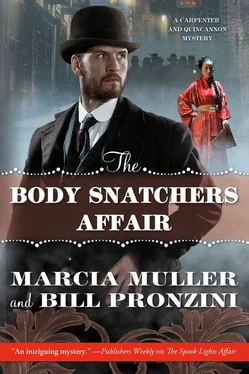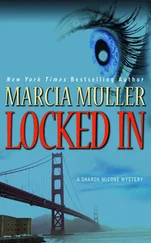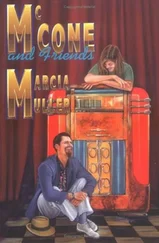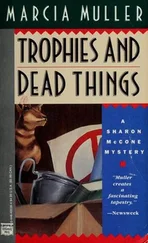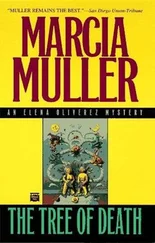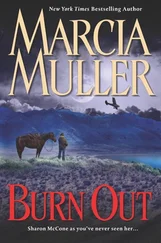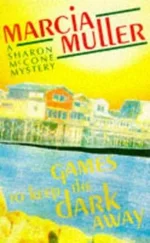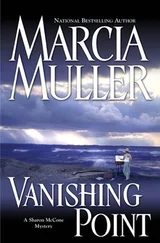Mr. Cleghorne considered, pinching his lower lip between thumb and forefinger. “No, I can’t say I do.”
“Or what prompted his decision to return to San Francisco?”
“A lucrative offer to join Monarch Engineering, I believe. And I imagine he’d had his fill of the rough-and-tumble life in the gold fields and decided it was time to settle down.”
“When exactly was that, do you recall?”
“Oh, about eight years ago.”
“In 1887, mid-year, perhaps?”
“Yes, I believe it was.”
Sabina didn’t pursue the subject any further. Mr. Cleghorne was incurably nosy and it wouldn’t be wise to arouse his curiosity. He was a man of his word and would not intentionally break a confidence, but as much gossiping as he did, there was always the chance that he might let something slip to one of his customers. It wouldn’t do for Carson to find out she’d been asking questions about him and his past. If he was innocent of any wrongdoing, and in no criminal danger despite the bughouse Sherlock’s dire warning, she would surely continue to accept his social invitations.
She changed the subject to the Blanchford family. Mention of the name caused Mr. Cleghorne to make a little moue of dissatisfaction. “Yes, of course I know them. I had the privilege of creating several birthday and anniversary bouquets for Mrs. Harriet Blanchford at her husband’s request. What I did not have the privilege of doing was handling the floral presentations for Mr. Blanchford’s funeral.”
“You weren’t asked?”
“No. The honor went instead to the Fielder brothers, inferior florists if I do say so myself. I should have thought Mrs. Blanchford had better taste and a greater sense of loyalty. Either she was too distraught, or more likely, she allowed that gauche son of hers to make the arrangements. That would explain why the services were held in such an undesirable establishment as the Evergreen Chapel.”
“You don’t approve of Joshua Trilby?”
“Not in the least. Trilby is a second-rate mortician with a reputation for cutting corners and paying his bills only upon threat of legal action. If I had been asked to provide floral displays for Ruben Blanchford’s funeral, I would have attempted to convince his widow to choose a more suitable venue. Otherwise I should have declined.”
“Do you know Bertram very well?”
“I do not, nor do I want to.” Mr. Cleghorne’s moue grew even more pronounced. “Gentleman sportsman, my eye. The man is nothing but a common racetrack habitué. God only knows where he obtained the money to invest in the new Ingleside course.”
Sabina knew about the new racetrack. The newspapers had run several stories about it since ground was broken in the sparsely populated Ingleside district southwest of downtown. The course was being constructed under the auspices of the Pacific Coast Jockey Club and would, according to one of the reports in the Morning Call, “inaugurate a new era of horse racing on this side of the continent.” Construction of the track and a five-thousand-seat grandstand was nearing completion; its opening was scheduled for Thanksgiving Day, with quality breeders from all over the country shipping their horses to take part in the premier races.
“I didn’t know Bertram was one of the investors,” Sabina said.
“I have it on good authority that he is.”
“Do you have any idea how much money he has in the project?”
“As much as he could scrape together, I suppose.”
Another drain on the family finances?
There was nothing more to be learned from Ross Cleghorne. When Sabina had asked the last of her questions, he left her and soon returned with her corsage — a rather elaborate one consisting of a trio of white rosebuds, white Monte Casino, and variegated pittosporum laced with white ribbon. “And for you, Mrs. Carpenter,” he said as he pinned it on her shirtwaist, “a special price of only ten dollars.”
Only ten dollars!
Sabina had three more stops to make after leaving the florist shop. The first was at the offices of M. R. Wainwright & Associates, a financial consultancy firm whose advice and assistance she and John had sought in the past. There was little that Matthew Wainwright, its principal executive, did not know about the financial status of the city’s prominent citizens. The fifteen minutes she spent with him turned out to be well worth her visit.
Slewfoot, the “blind” news vendor, and Madame Louella, a self-proclaimed Gypsy who told fortunes on Kearney Street at the edge of the Barbary Coast, were Sabina’s two most reliable street informants. Both supplemented their incomes by gathering bits and pieces of salable information, much of it concerning illegal and quasi-legal activities in the Coast and other of the city’s less desirable areas. But neither had anything worthwhile to tell her, at least not yet. They had never heard of Artemas Sneed or any sort of blackmail scheme involving what Sabina labeled “a member of the social elite,” had no idea what the crackbrain Sherlock might be up to or where he was hanging his deerstalker cap, or knew anything about Bertram Blanchford or Joshua Trilby that she hadn’t already been told.
Two dollars to each and the promise of more ensured that they would immediately spread the word among their many sources. If there was even the smallest piece of news to be learned, Slewfoot and/or Madame Louella would have it within twenty-four hours.
For the time being, then, all Sabina could do was wait.
The streets of Chinatown were even less populated today. The small number of black-clad, pigtailed men and work-stooped women abroad hurried on their errands, wariness in their movements, their usual singsong chatter muted. There was an almost palpable tension in the air. The danger of widespread tong violence, police raids, and vigilante retaliation from the Chinese-hating inhabitants of the poor white neighborhoods had spread fear throughout the Quarter.
Mock Don Yuen’s herb shop was closed, shuttered, and apparently empty. Several sharp raps on the door and two more on the window glass brought no response. Well, this was no surprise. Whether or not the Hip Sing Company’s new president was mixed up in the intrigue, he would be sensitive to the ominous rumblings and likely have sought refuge in the tong’s headquarters.
Quincannon briefly considered another visit there and discarded the idea. Mock Don Yuen would surely refuse to see him, as would Mock Quan; chances were he wouldn’t even be permitted to enter the building this time. There was nothing to be gained in making the effort. For that matter, he shouldn’t have bothered coming here to the herb shop. Neither Mock Don Yuen nor anyone else in a position of power in Chinatown would have anything to say at this point to an Occidental detective with no official standing.
The Chinese woman, Dongmei, on the other hand...
The building in which she resided was on the steep section of Clay Street that rose above Portsmouth Square. Two stories, built of brick with a slatted wooden front, it stood between a pagoda-corniced temple and a larger structure that Quincannon guessed, by dint of its shuttered windows and profusion of Chinese characters, belonged to one of the small benevolent associations that dotted the Quarter. A balcony festooned with colored lanterns stretched across the upper floor; the windows behind it were likewise shuttered.
The entrance was narrow, recessed from the wooden sidewalk by two steps. The door there had no lock; it opened into a dark vestibule no larger than a cell. Stairs rose at its end, with another door behind them that would give access to the ground-floor apartment. Dongmei’s would be the one upstairs, he judged, as befitted a woman of status in the community.
Читать дальше
